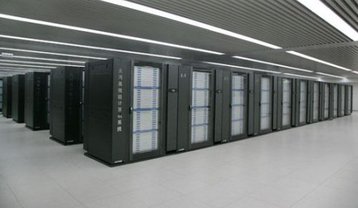US citizens building powerful supercomputers for “countries of concern” such as China could fall foul of the latest round of export controls being proposed by Washington.
Under the new rules, put forward by the Investment Security Office, citizens and permanent residents of America would be banned from undertaking supercomputing-related activities, or have to report any related transactions with countries of concern to the US government. Countries listed include China, Hong Kong, and Macau.
The proposal is the latest put forward by America as part of its ongoing tech trade war with China, which aims to restrict the latter’s access to technologies such as AI which are deemed key to US national security. American companies are already severely restricted when it comes to selling certain types of advanced AI chips and chipmaking equipment to customers in China.
How the new US supercomputing controls work
The “Provisions Pertaining to US Investments in Certain National Security Technologies and Products in Countries of Concern” rules were published last month, and were open for comments until August 5.
Supercomputing activities covered by rules are said to “include developing, installing, selling, or producing any supercomputer enabled by advanced integrated circuits that can provide a theoretical compute capacity of 100 or more double-precision (64-bit) petaflops or 200 or more single-precision (32-bit) petaflops of processing power within a 41,600 cubic foot or smaller envelope.”
In addition, US citizens and residents would be mandated to inform the government about certain supercomputing transactions if they hold a position in a foreign company, such as partner, manager or investment advisor. US citizens also have to track and prevent foreign entities from conducting transactions within the supercomputing context with China, the rules say.
Some US companies could find themselves caught out by the legislation. Chipmaker Cerebras, for example, has a partnership in place to build nine AI supercomputers for UAE-based G42. However, reports have suggested G42 is also supplying technology to China.
China claims to have several powerful supercomputers already up and running, but no longer participates in the Top500 benchmarking system, so such claims remain unverified. The most powerful Chinese computer benchmarked by Top500 is the Tianhe-2A, installed in 2018.
In February, China Telecom said it had built a supercomputer entirely based on Chinese-made components, capable of training AI models with trillions of parameters.
US-China semiconductor trade war rumbles on
The US has been imposing increasingly severe export controls on China for the last three years as it seeks to stop Beijing from developing advanced AI capabilities.
Chipmakers such as AMD and Nvidia are banned from selling their leading-edge CPUs and GPUs in China, and even less powerful versions of their flagship products, developed specifically for the Chinese market, have been banned.
Despite this, earlier this year it was reported that Chinese military institutions, state-run AI research centers, and universities across the country have been purchasing Nvidia GPUs, with publicly available tender documents showing that there have been over 100 transactions relating to the sale of A100 chips over the last year, with H100, A800, and H800 chips also being procured in spite of the bans.
The US has also sought to limit China’s access to advanced chipmaking equipment produced by Dutch company ASML, and has successfully pressured the Dutch government into taking action against the company, revoking an export license to stop the shipment of two older lithography machines to Chinese customers. Earlier this year, the US said would start asking its allies to stop their domestic semiconductor companies from servicing chipmaking tools for Chinese customers.
Outgoing ASML CEO Peter Wennink, who retired in April, said last month that he expects the “ideologically driven” hostilities to last for several decades.




